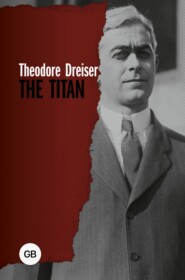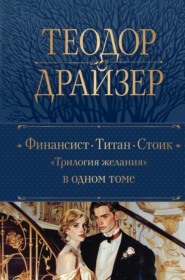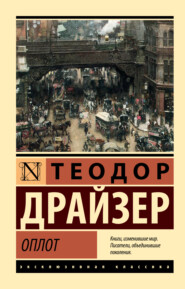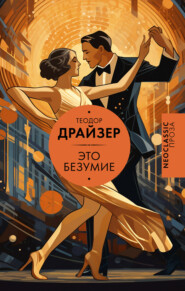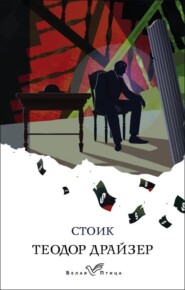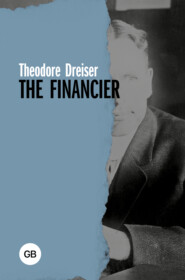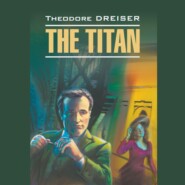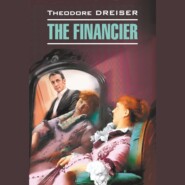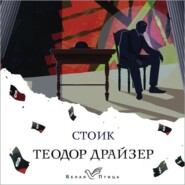По всем вопросам обращайтесь на: info@litportal.ru
(©) 2003-2025.
✖
The "Genius"
Настройки чтения
Размер шрифта
Высота строк
Поля
He subsided, hurt, half angry. But he feared her will. She was really not as ready for caresses as he had thought.
Another time a sleighing party was given by some school girls, and Stella, Eugene and Myrtle were invited. It was a night of snow and stars, not too cold but bracing. A great box-wagon had been dismantled of its body and the latter put on runners and filled with straw and warm robes. Eugene and Myrtle, like the others, had been picked up at their door after the sleigh had gone the rounds of some ten peaceful little homes. Stella was not in yet, but in a little while her house was reached.
"Get in here," called Myrtle, though she was half the length of the box away from Eugene. Her request made him angry. "Sit by me," he called, fearful that she would not. She climbed in by Myrtle but finding the space not to her liking moved farther down. Eugene made a special effort to have room by him, and she came there as though by accident. He drew a buffalo robe around her and thrilled to think that she was really there. The sleigh went jingling around the town for others, and finally struck out into the country. It passed great patches of dark woods silent in the snow, little white frame farmhouses snuggled close to the ground, and with windows that gleamed in a vague romantic way. The stars were countless and keen. The whole scene made a tremendous impression on him, for he was in love, and here beside him, in the shadow, her face palely outlined, was this girl. He could make out the sweetness of her cheek, her eyes, the softness of her hair.
There was a good deal of chatter and singing, and in the midst of these distractions he managed to slip an arm about her waist, to get her hand in his, to look close into her eyes, trying to divine their expression. She was always coy with him, not wholly yielding. Three or four times he kissed her cheek furtively and once her mouth. In a dark place he pulled her vigorously to him, putting a long, sensuous kiss on her lips that frightened her.
"No," she protested, nervously. "You mustn't."
He ceased for a time, feeling that he had pressed his advantage too closely. But the night in all its beauty, and she in hers made a lasting impression.
"I think we ought to get Eugene into newspaper work or something like that," Witla senior suggested to his wife.
"It looks as though that's all he would be good for, at least now," replied Mrs. Witla, who was satisfied that her boy had not yet found himself. "I think he'll do something better later on. His health isn't very good, you know."
Witla half suspected that his boy was naturally lazy, but he wasn't sure. He suggested that Benjamin C. Burgess, the prospective father-in-law of Sylvia and the editor and proprietor of the Morning Appeal, might give him a place as a reporter or type-setter in order that he might learn the business from the ground up. The Appeal carried few employees, but Mr. Burgess might have no objections to starting Eugene as a reporter if he could write, or as a student of type-setting, or both. He appealed to Burgess one day on the street.
"Say, Burgess," he said, "you wouldn't have a place over in your shop for that boy of mine, would you? He likes to scribble a little, I notice. I think he pretends to draw a little, too, though I guess it doesn't amount to much. He ought to get into something. He isn't doing anything at school. Maybe he could learn type-setting. It wouldn't hurt him to begin at the bottom if he's going to follow that line. It wouldn't matter what you paid him to begin with."
Burgess thought. He had seen Eugene around town, knew no harm of him except that he was lackadaisical and rather moody.
"Send him in to see me some day," he replied noncommittally. "I might do something for him."
"I'd certainly be much obliged to you if you would," said Witla. "He is not doing much good as it is now," and the two men parted.
He went home and told Eugene. "Burgess says he might give you a position as a type-setter or a reporter on the Appeal if you'd come in and see him some day," he explained, looking over to where his son was reading by the lamp.
"Does he?" replied Eugene calmly. "Well, I can't write. I might set type. Did you ask him?"
"Yes," said Witla. "You'd better go to him some day."
Eugene bit his lip. He realized this was a commentary on his loafing propensities. He wasn't doing very well, that was certain. Still type-setting was no bright field for a person of his temperament. "I will," he concluded, "when school's over."
"Better speak before school ends. Some of the other fellows might ask for it around that time. It wouldn't hurt you to try your hand at it."
"I will," said Eugene obediently.
He stopped in one sunny April afternoon at Mr. Burgess' office. It was on the ground floor of the three-story Appeal building in the public square. Mr. Burgess, a fat man, slightly bald, looked at him quizzically over his steel rimmed spectacles. What little hair he had was gray.
"So you think you would like to go into the newspaper business, do you?" queried Burgess.
"I'd like to try my hand at it," replied the boy. "I'd like to see whether I like it."
"I can tell you right now there's very little in it. Your father says you like to write."
"I'd like to well enough, but I don't think I can. I wouldn't mind learning type-setting. If I ever could write I'd be perfectly willing to."
"When do you think you'd like to start?"
"At the end of school, if it's all the same to you."
"It doesn't make much difference. I'm not really in need of anybody, but I could use you. Would you be satisfied with five a week?"
"Yes, sir."
"Well, come in when you are ready. I'll see what I can do."
He waved the prospective type-setter away with a movement of his fat hand, and turned to his black walnut desk, dingy, covered with newspapers, and lit by a green shaded electric light. Eugene went out, the smell of fresh printing ink in his nose, and the equally aggressive smell of damp newspapers. It was going to be an interesting experience, he thought, but perhaps a waste of time. He did not think so much of Alexandria. Some time he was going to get out of it.
The office of the Appeal was not different from that of any other country newspaper office within the confines of our two hemispheres. On the ground floor in front was the business office, and in the rear the one large flat bed press and the job presses. On the second floor was the composing room with its rows of type cases on their high racks – for this newspaper was, like most other country newspapers, still set by hand; and in front was the one dingy office of the so-called editor, or managing editor, or city editor – for all three were the same person, a Mr. Caleb Williams whom Burgess had picked up in times past from heaven knows where. Williams was a small, lean, wiry man, with a black pointed beard and a glass eye which fixed you oddly with its black pupil. He was talkative, skipped about from duty to duty, wore most of the time a green shade pulled low over his forehead, and smoked a brown briar pipe. He had a fund of knowledge, piled up in metropolitan journalistic experience, but he was anchored here with a wife and three children, after sailing, no doubt, a chartless sea of troubles, and was glad to talk life and experiences after office hours with almost anybody. It took him from eight in the morning until two in the afternoon to gather what local news there was, and either write it or edit it. He seemed to have a number of correspondents who sent him weekly batches of news from surrounding points. The Associated Press furnished him with a few minor items by telegraph, and there was a "patent insides," two pages of fiction, household hints, medicine ads. and what not, which saved him considerable time and stress. Most of the news which came to him received short shrift in the matter of editing. "In Chicago we used to give a lot of attention to this sort of thing," Williams was wont to declare to anyone who was near, "but you can't do it down here. The readers really don't expect it. They're looking for local items. I always look after the local items pretty sharp."
Mr. Burgess took care of the advertising sections. In fact he solicited advertising personally, saw that it was properly set up as the advertiser wanted it, and properly placed according to the convenience of the day and the rights and demands of others. He was the politician of the concern, the handshaker, the guider of its policy. He wrote editorials now and then, or, with Williams, decided just what their sense must be, met the visitors who came to the office to see the editor, and arbitrated all known forms of difficulties. He was at the beck and call of certain Republican party-leaders in the county; but that seemed natural, for he was a Republican himself by temperament and disposition. He was appointed postmaster once to pay him for some useful services, but he declined because he was really making more out of his paper than his postmastership would have brought. He received whatever city or county advertising it was in the power of the Republican leaders to give him, and so he did very well. The complications of his political relationships Williams knew in part, but they never troubled that industrious soul. He dispensed with moralizing. "I have to make a living for myself, my wife and three children. That's enough to keep me going without bothering my head about other people." So this office was really run very quietly, efficiently, and in most ways pleasantly. It was a sunny place to work.
Witla, who came here at the end of his eleventh school year and when he had just turned seventeen, was impressed with the personality of Mr. Williams. He liked him. He came to like a Jonas Lyle who worked at what might be called the head desk of the composing room, and a certain John Summers who worked at odd times – whenever there was an extra rush of job printing. He learned very quickly that John Summers, who was fifty-five, grey, and comparatively silent, was troubled with weak lungs and drank. Summers would slip out of the office at various times in the day and be gone from five to fifteen minutes. No one ever said anything, for there was no pressure here. What work was to be done was done. Jonas Lyle was of a more interesting nature. He was younger by ten years, stronger, better built, but still a character. He was semi-phlegmatic, philosophic, feebly literary. He had worked, as Eugene found out in the course of time, in nearly every part of the United States – Denver, Portland, St. Paul, St. Louis, where not, and had a fund of recollections of this proprietor and that. Whenever he saw a name of particular distinction in the newspapers he was apt to bring the paper to Williams – and later, when they became familiar, to Eugene – and say, "I knew that fellow out in – . He was postmaster (or what not) at X – . He's come up considerably since I knew him." In most cases he did not know these celebrities personally at all, but he knew of them, and the echo of their fame sounding in this out-of-the-way corner of the world impressed him. He was a careful reader of proof for Williams in a rush, a quick type-setter, a man who stayed by his tasks faithfully. But he hadn't got anywhere in the world, for, after all, he was little more than a machine. Eugene could see that at a glance.
It was Lyle who taught him the art of type-setting. He demonstrated the first day the theory of the squares or pockets in a case, how some letters were placed more conveniently to the hand than others, why some letters were well represented as to quantity, why capitals were used in certain offices for certain purposes, in others not. "Now on the Chicago Tribune we used to italicize the names of churches, boats, books, hotels, and things of that sort. That's the only paper I ever knew to do that," he remarked. What slugs, sticks, galleys, turnovers, meant, came rapidly to the surface. That the fingers would come to recognize weights of leads by the touch, that a letter would almost instinctively find its way back to its proper pocket, even though you were not thinking, once you became expert, were facts which he cheerfully communicated. He wanted his knowledge taken seriously, and this serious attention, Eugene, because of his innate respect for learning of any kind, was only too glad to give him. He did not know what he wanted to do, but he knew quite well that he wanted to see everything. This shop was interesting to him for some little time for this reason, for though he soon found that he did not want to be a type-setter or a reporter, or indeed anything much in connection with a country newspaper, he was learning about life. He worked at his desk cheerfully, smiling out upon the world, which indicated its presence to him through an open window, read the curious bits of news or opinion or local advertisements as he set them up, and dreamed of what the world might have in store for him. He was not vastly ambitious as yet, but hopeful and, withal, a little melancholy. He could see boys and girls whom he knew, idling in the streets or on the corner squares; he could see where Ted Martinwood was driving by in his father's buggy, or George Anderson was going up the street with the air of someone who would never need to work. George's father owned the one and only hotel. There were thoughts in his mind of fishing, boating, lolling somewhere with some pretty girl, but alas, girls did not apparently take to him so very readily. He was too shy. He thought it must be nice to be rich. So he dreamed.
Eugene was at that age when he wished to express himself in ardent phrases. He was also at the age when bashfulness held him in reserve, even though he were in love and intensely emotional. He could only say to Stella what seemed trivial things, and look his intensity, whereas it was the trivial things that were most pleasing to her, not the intensity. She was even then beginning to think he was a little strange, a little too tense for her disposition. Yet she liked him. It became generally understood around town that Stella was his girl. School day mating usually goes that way in a small city or village. He was seen to go out with her. His father teased him. Her mother and father deemed this a manifestation of calf love, not so much on her part, for they were aware of her tendency to hold lightly any manifestation of affection on the part of boys, but on his. They thought his sentimentalism would soon be wearisome to Stella. And they were not far wrong about her. On one occasion at a party given by several high school girls, a "country post office" was organized. That was one of those games which mean kissing only. A system of guessing results in a series of forfeits. If you miss you must be postmaster, and call someone for "mail." Mail means to be kissed in a dark room (where the postmaster stands) by someone whom you like or who likes you. You, as postmaster, have authority or compulsion – however you feel about it – to call whom you please.
In this particular instance Stella, who was caught before Eugene, was under compulsion to call someone to kiss. Her first thought was of him, but on account of the frankness of the deed, and because there was a lurking fear in her of his eagerness, the name she felt impelled to speak was Harvey Rutter. Harvey was a handsome boy whom Stella had met after her first encounter with Eugene. He was not as yet fascinating to her, but pleasing. She had a coquettish desire to see what he was like. This was her first direct chance.
He stepped gaily in, and Eugene was at once insane with jealousy. He could not understand why she should treat him in that way. When it came to his turn he called for Bertha Shoemaker, whom he admired, and who was sweet in a way, but who was as nothing to Stella in his estimation. The pain of kissing her when he really wanted the other girl was great. When he came out Stella saw moodiness in his eyes, but chose to ignore it. He was obviously half-hearted and downcast in his simulation of joy.
A second chance came to her and this time she called him. He went, but was in a semi-defiant mood. He wanted to punish her. When they met in the dark she expected him to put his arms around her. Her own hands were up to about where his shoulders should be. Instead he only took hold of one of her arms with his hand and planted a chilly kiss on her lips. If he had only asked, "Why did you?" or held her close and pleaded with her not to treat him so badly, the relationship might have lasted longer. Instead he said nothing, and she grew defiant and she went out gaily. There was a strain of reserve running between them until the party broke up and he took her home.
"You must be melancholy tonight," she remarked, after they had walked two blocks in complete silence. The streets were dark, and their feet sounded hollowly on the brick pavement.
"Oh, I'm feeling all right," he replied moodily.
"I think it's awfully nice at the Weimers', we always have so much fun there."
"Yes, lots of fun," he echoed contemptuously.
"Oh, don't be so cross!" she flared. "You haven't any reason for fussing."
"Haven't I?"
"No, you haven't."
"Well if that's the way you feel about it I suppose I haven't. I don't see it that way."
"Well, it doesn't make any difference to me how you see it."
"Oh, doesn't it?"
"No, it doesn't." Her head was up and she was angry.
"Well I'm sure then it doesn't to me."






